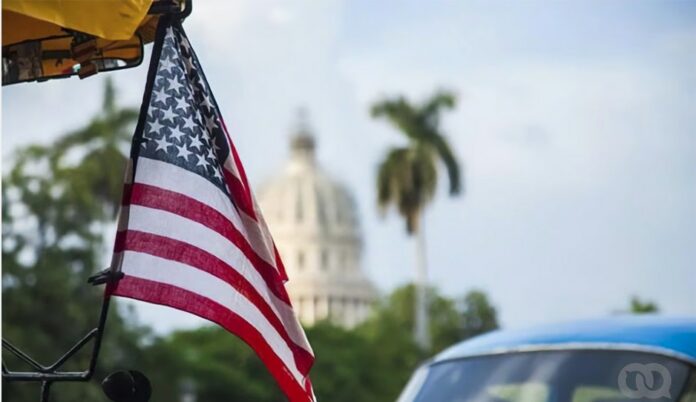
By El Toque
HAVANA TIMES – In a surprise move, the Biden administration removed Cuba from the list of state sponsors of terrorism. According to Martí Noticias, in exchange, the Cuban government promised to release political prisoners.
Most of the country’s political prisoners have been incarcerated since the massive protests on July 11, 2021. Martí Noticias reported that the negotiation process involved both countries in collaboration with the Vatican. The Holy See had previously assisted in negotiations for the release of prisoners from the Black Spring and during the so-called thaw that began on December 17, 2014.
Cardinal Juan de la Caridad Rodríguez of Havana told Martí Noticias that he was unaware whether the political prisoners would be released.
In a press release, Cuba’s Ministry of Foreign Affairs (Minrex) announced that the state would gradually release 553 people “sanctioned for various crimes.” It remains unclear what crimes were considered or who these individuals are.
A senior Biden administration official informed journalists in a press call that the decision was made unilaterally and was tied to the Cuban government’s commitment to the Catholic Church to release political prisoners. According to the official, the Catholic Church acted as a mediator in the process, and the release of a “significant number” of detainees is expected to be announced soon.
The official also stated that the administration would suspend Title III of the Helms-Burton Act for six months and remove another list of entities restricted from doing business with the United States. No further details about this part of the agreement were provided.
It is unclear how long these measures will last, as the Biden government has less than a week remaining in the White House. Incoming President Donald Trump has promised a tough stance against the regime that has governed the island since 1959. Trump’s proposed Secretary of State is Cuban-American Marco Rubio, one of the most vocal supporters of this hardline approach.
The news surprised many. In December 2024, current Secretary of State Antony Blinken told Cuban-American Congresswoman María Elvira Salazar that there would be no changes regarding Cuba until January 20, 2025. “I do not anticipate any changes,” Blinken said.
Cuba was first included on the list of countries supporting terrorism in 1982. Ronald Reagan’s Republican administration accused Fidel Castro’s government of supporting armed and terrorist groups in Latin America and other parts of the world. In 2015, former President Barack Obama removed the island from the list for the first time. However, during the final days of his first administration in 2021, Trump reinstated Cuba on the list.
How Does the List Affect Cubans?
Inclusion on the list impacts both the regime and some Cubans abroad. Sanctions include the prohibition of economic aid and restrictions on the entry of both military and civilian goods to the island. It also complicates the Cuban state’s ability to obtain international loans from the World Bank and the IMF, as well as limiting participation in international collaboration programs and business deals with US entities.
For individuals, dual nationals of Cuban origin are ineligible for the electronic ESTA visa, which facilitates travel to the United States. Foreign nationals who have recently visited Cuba are also affected by this measure.
Additionally, Cubans face restrictions on operating bank accounts or using payment platforms such as Wise or PayPal. Customer accounts can be blocked solely due to their Cuban origin.
First published in Spanish by El Toque and translated and posted in English by Havana Times.
Read more from Cuba here on Havana Times.




